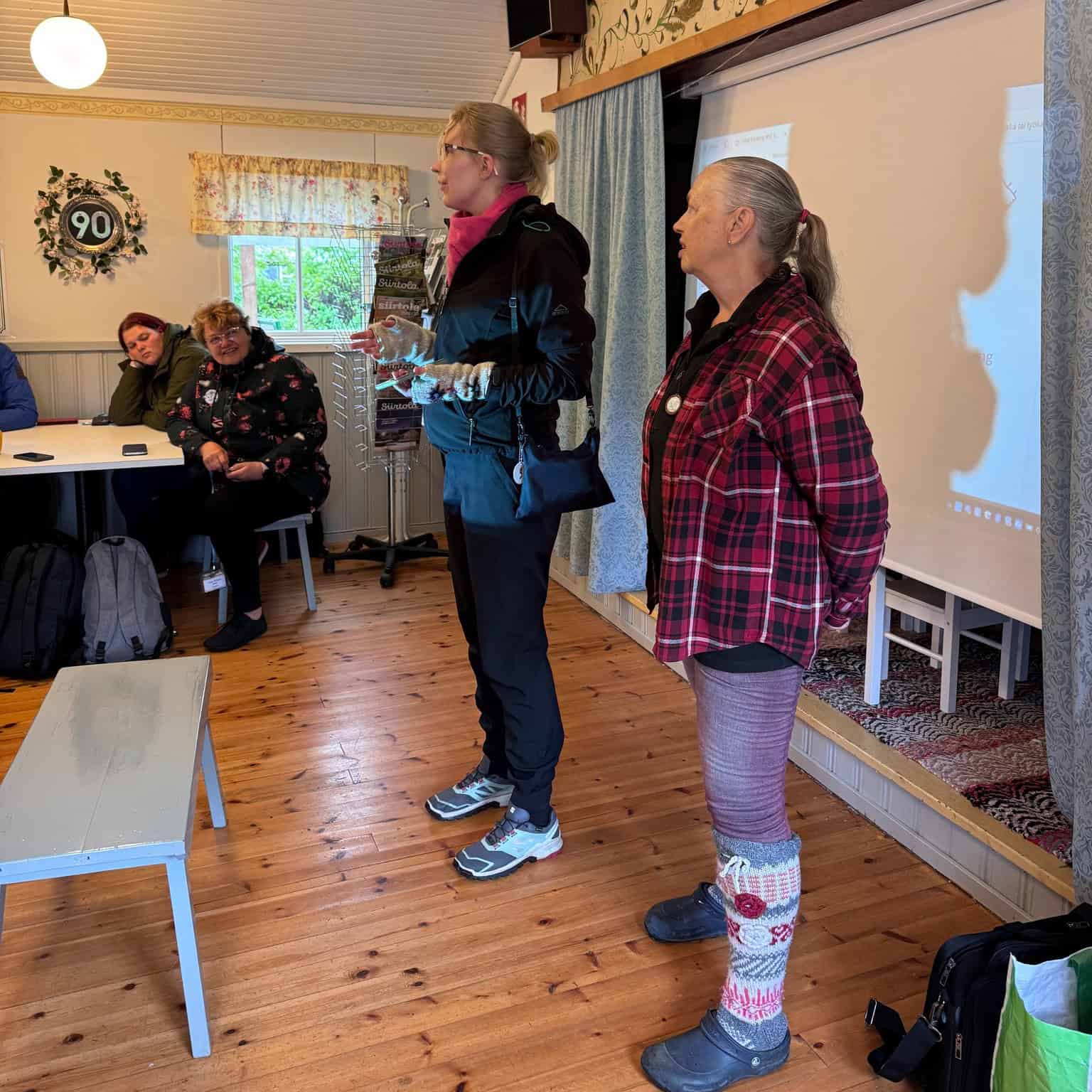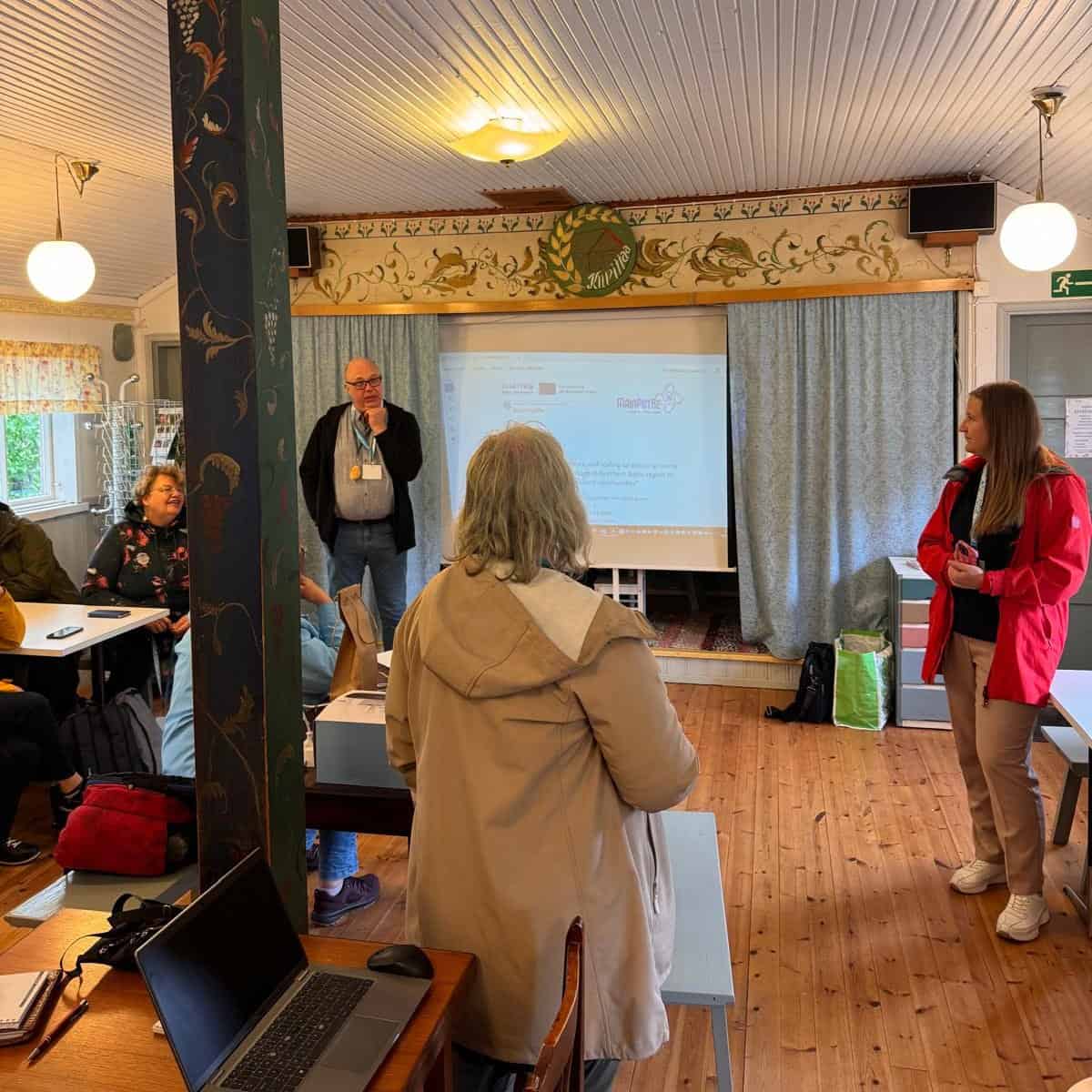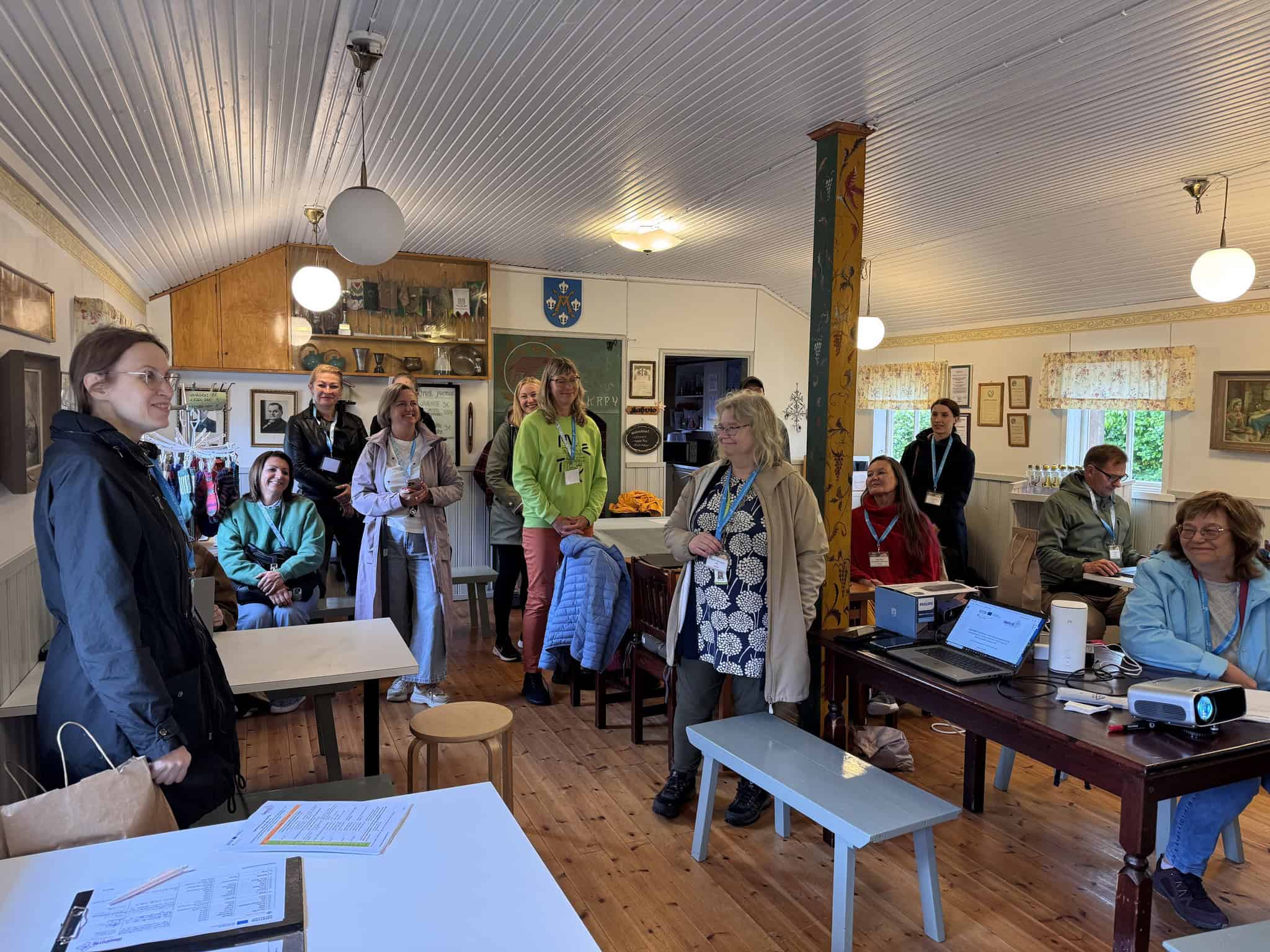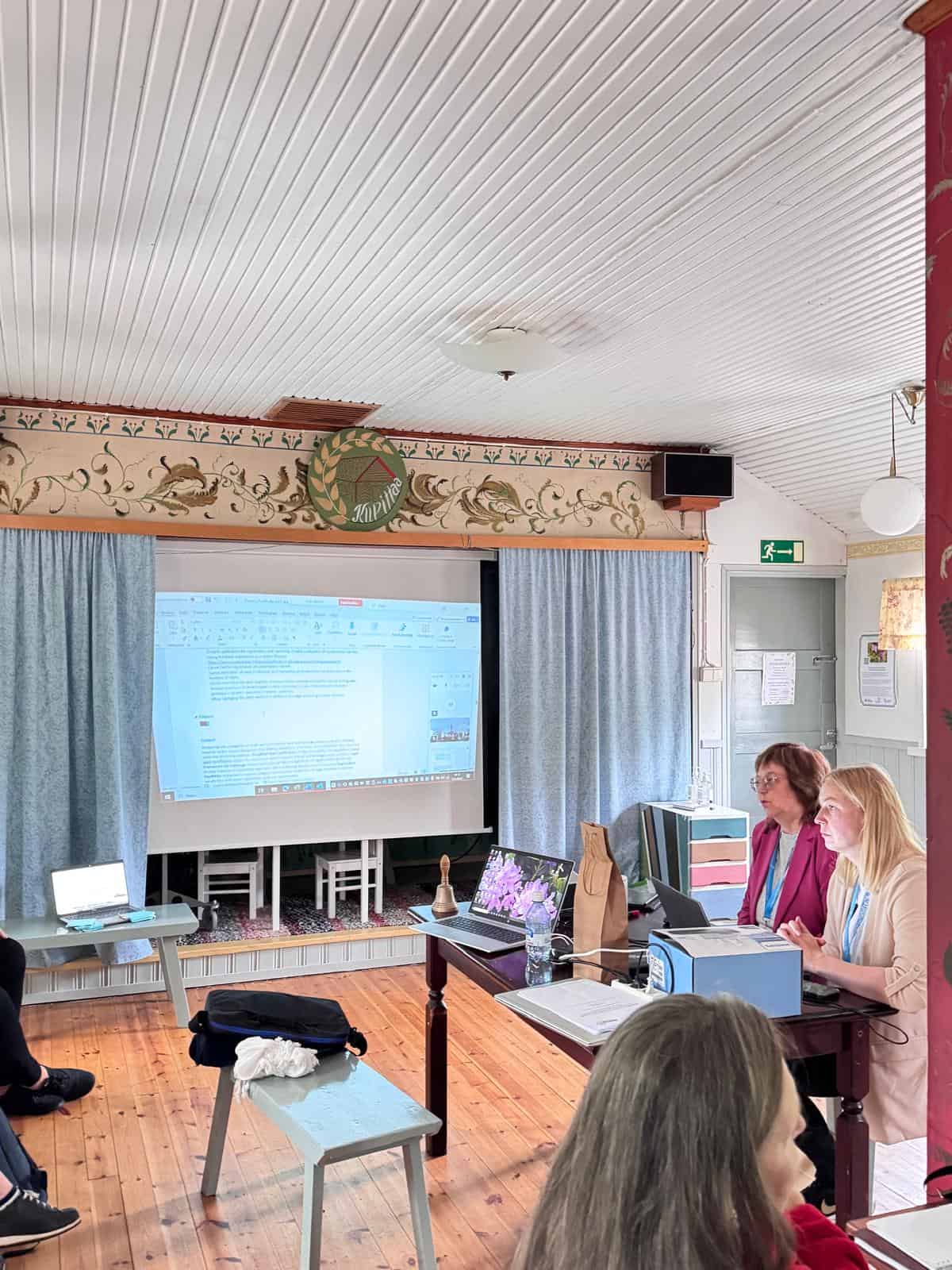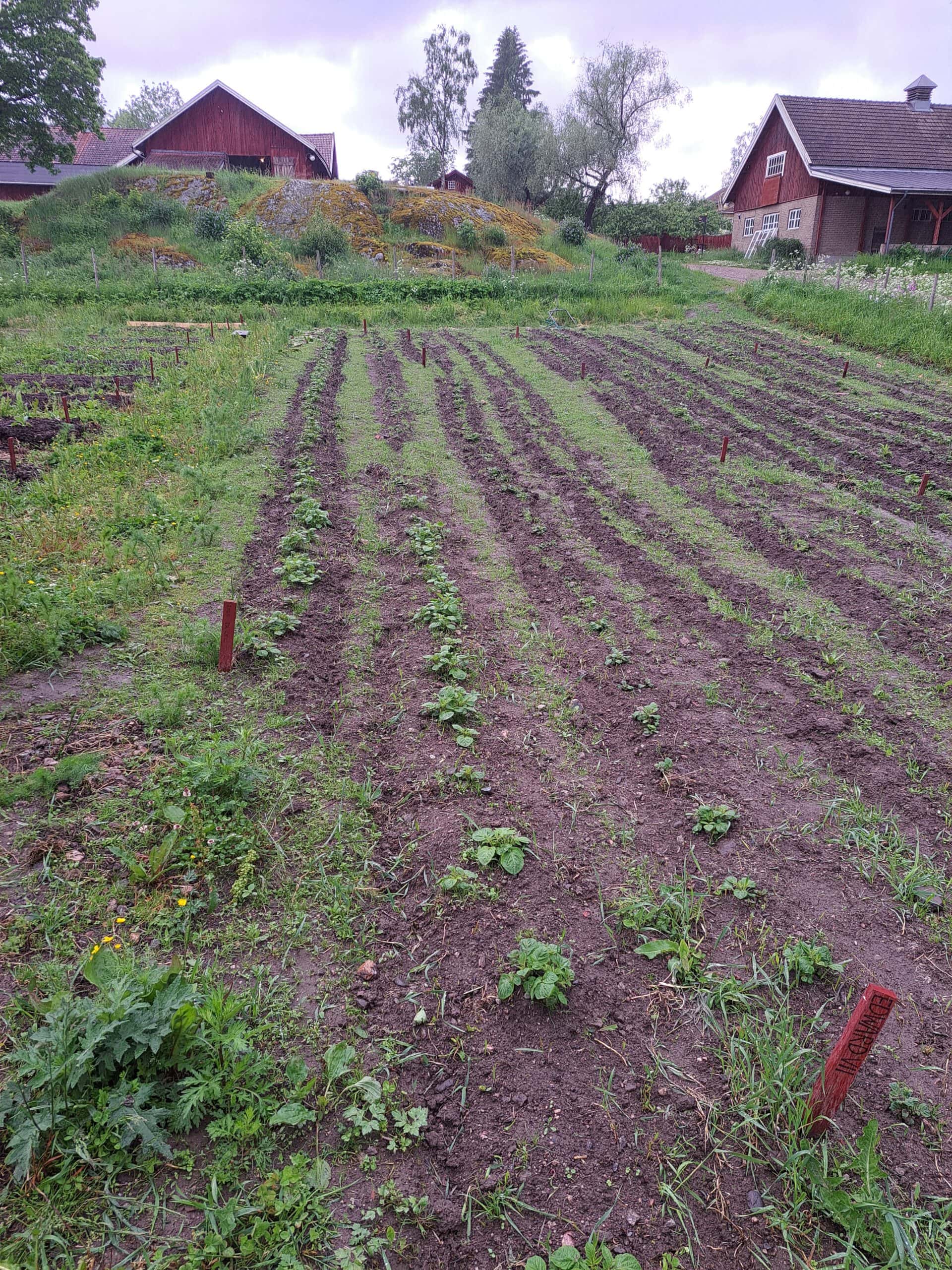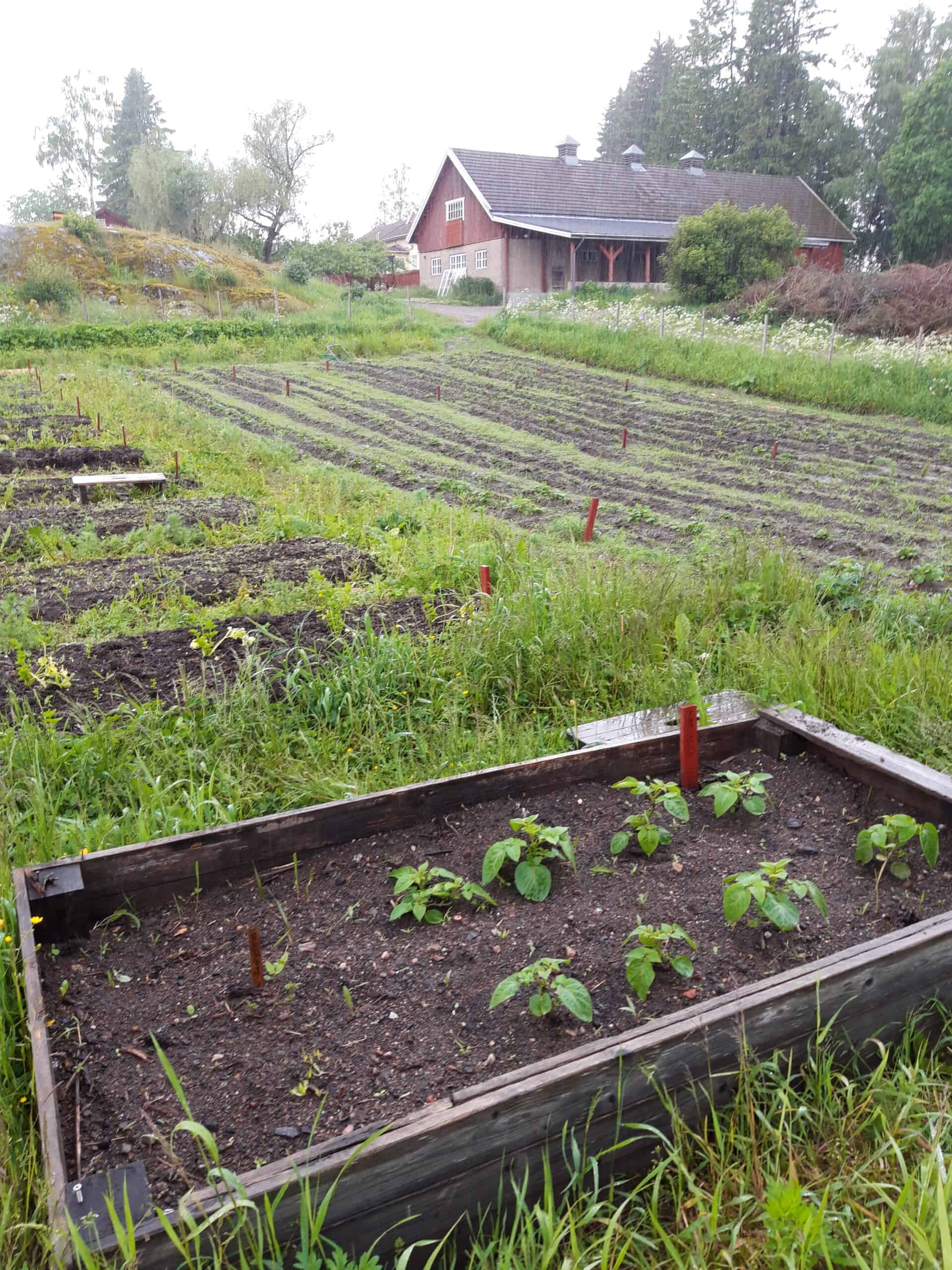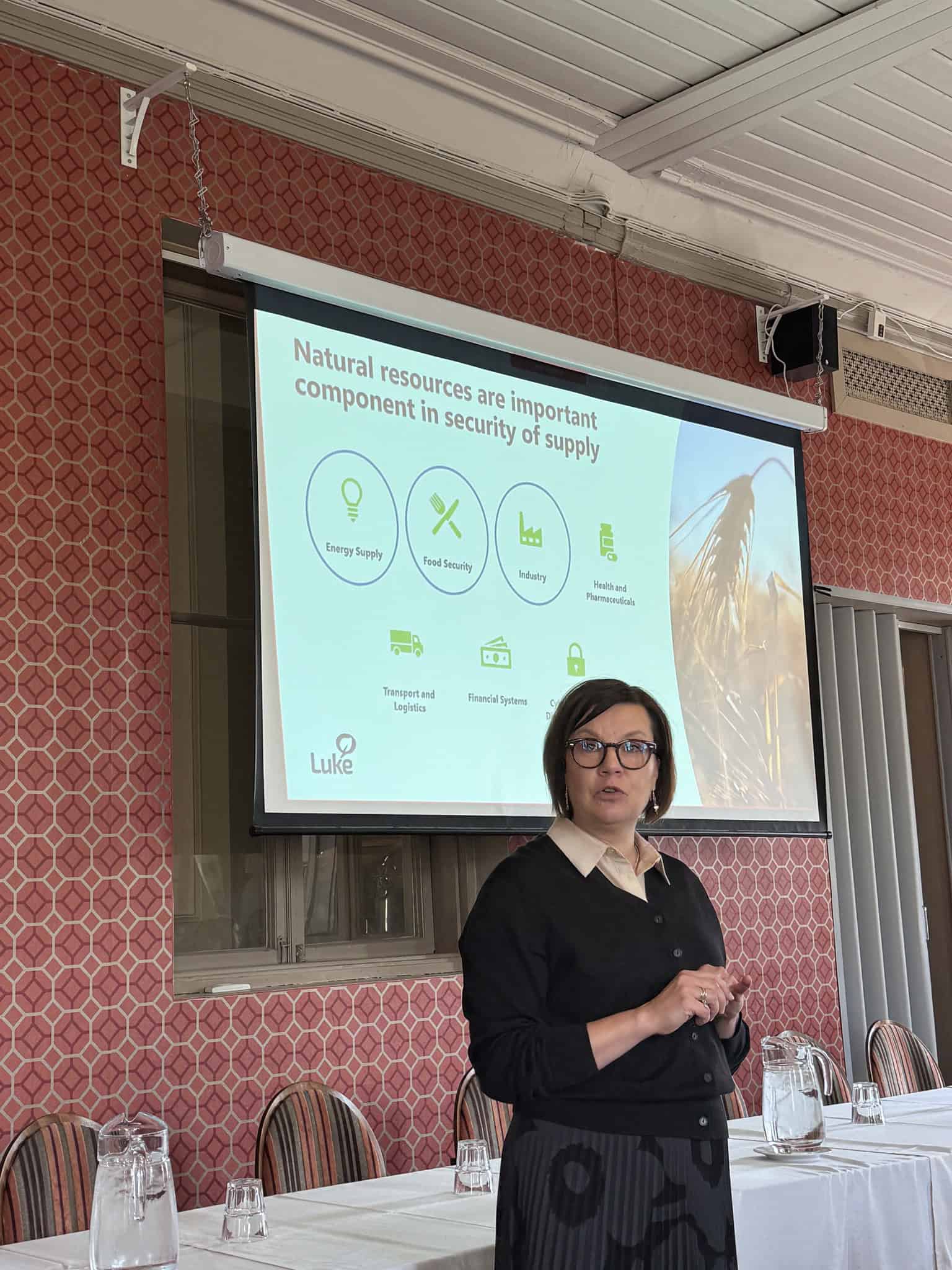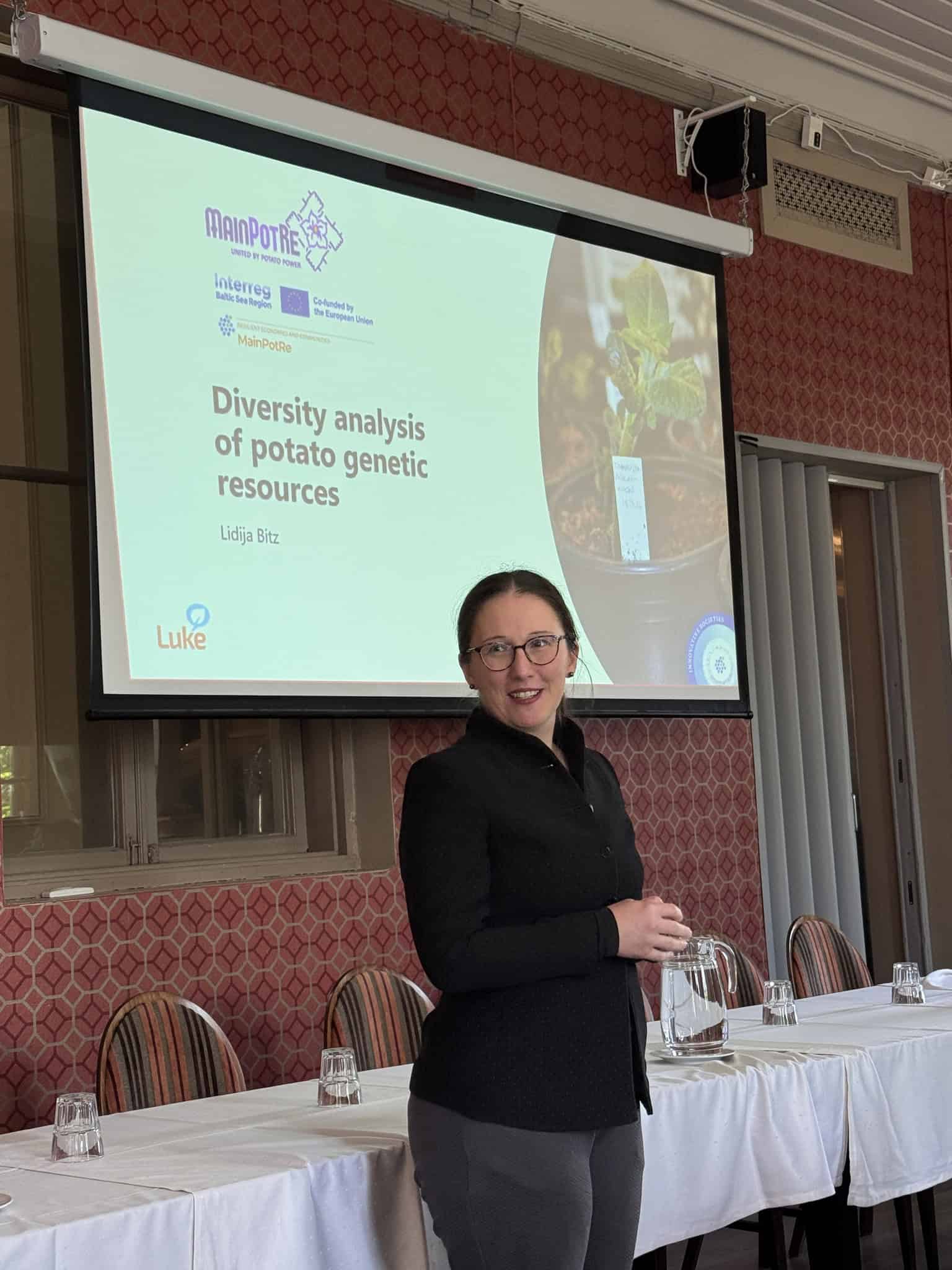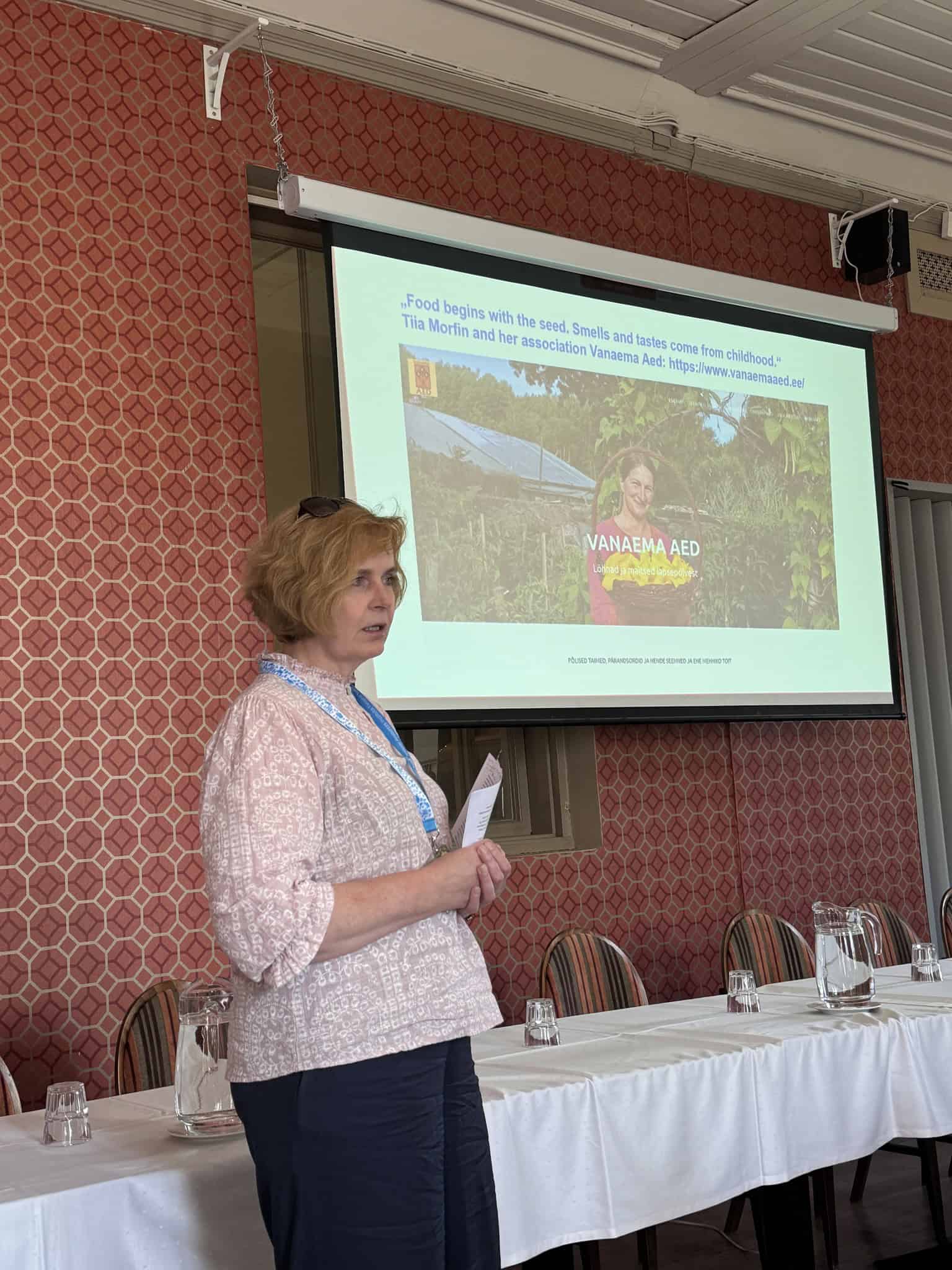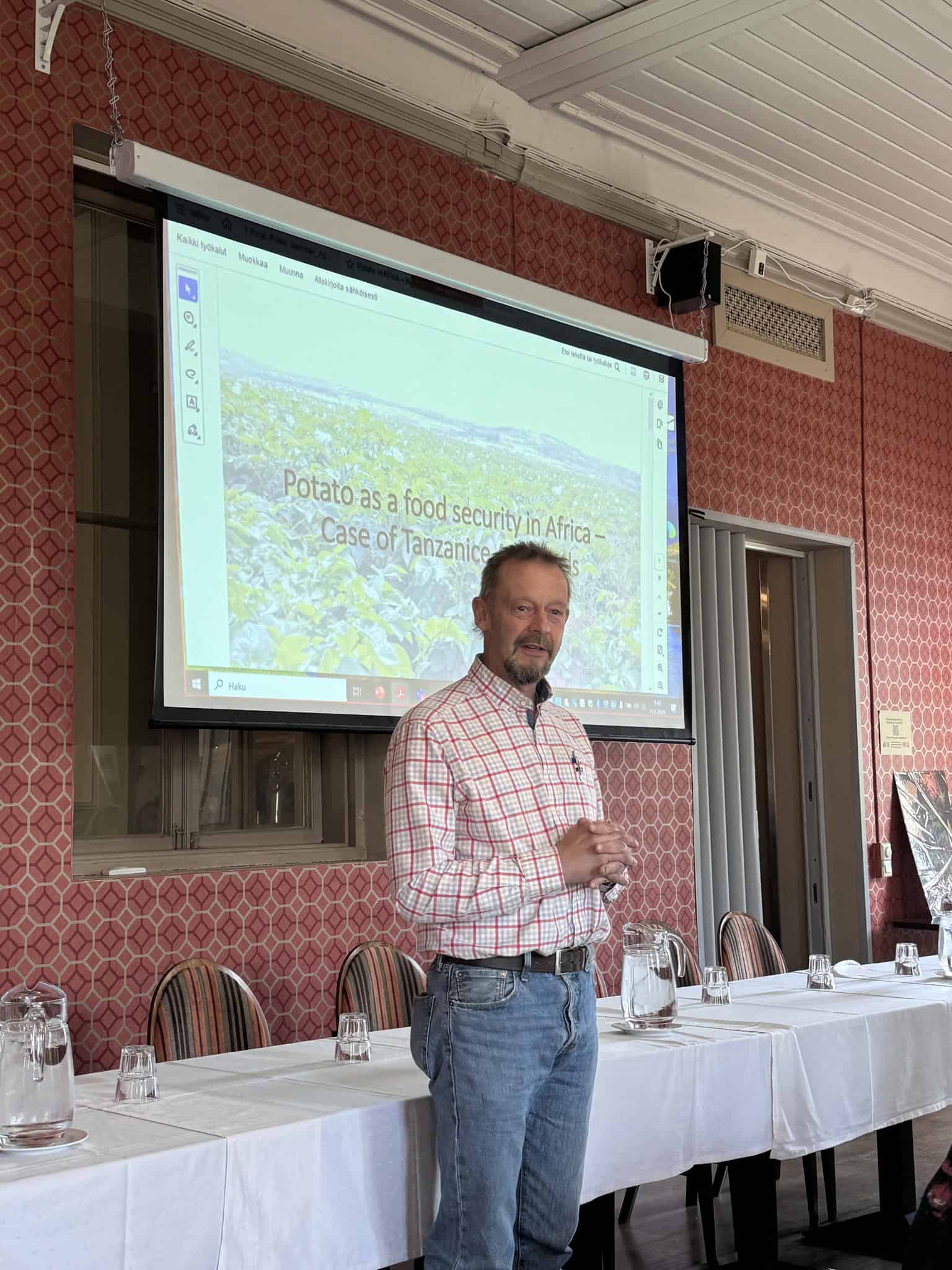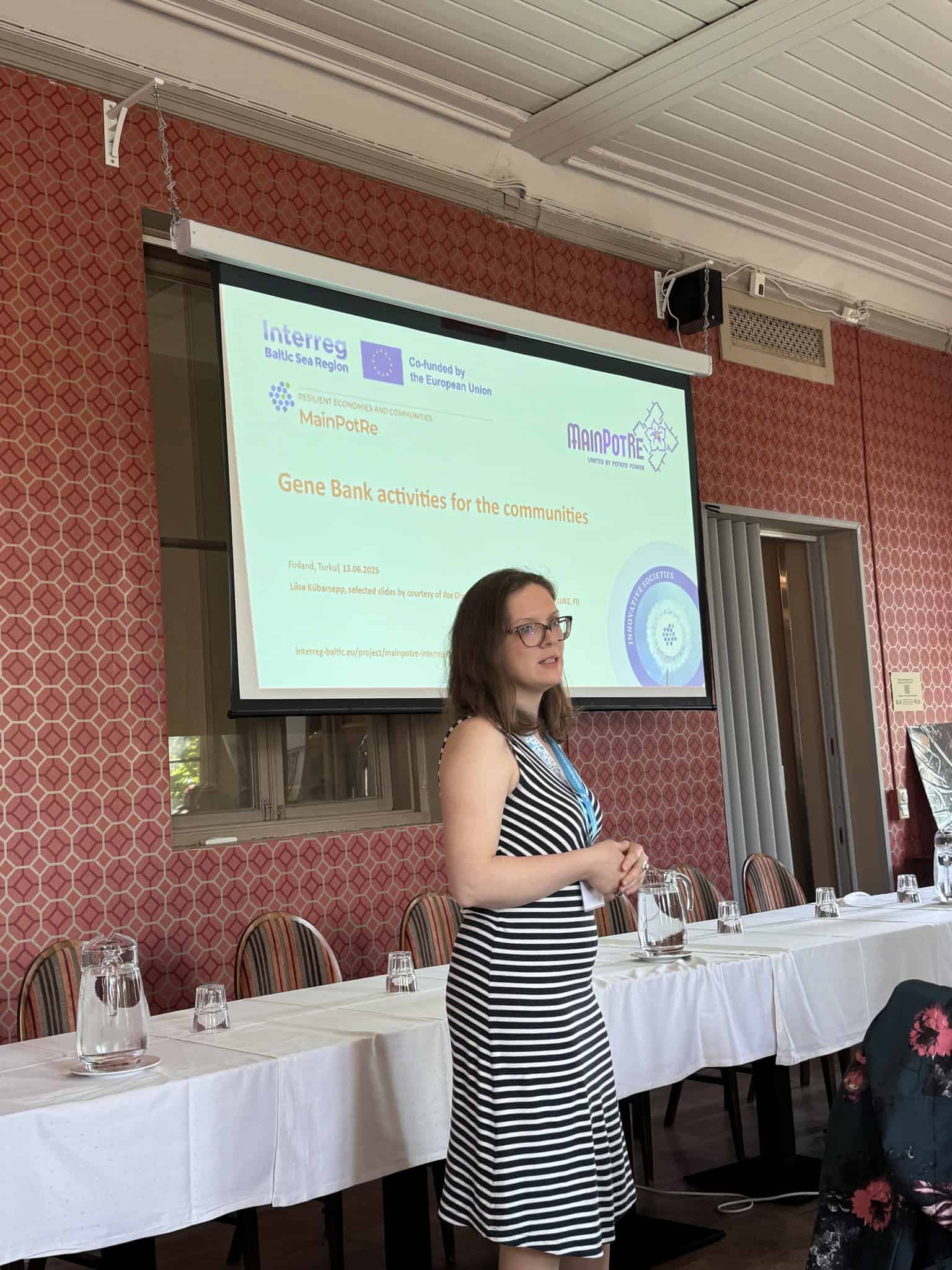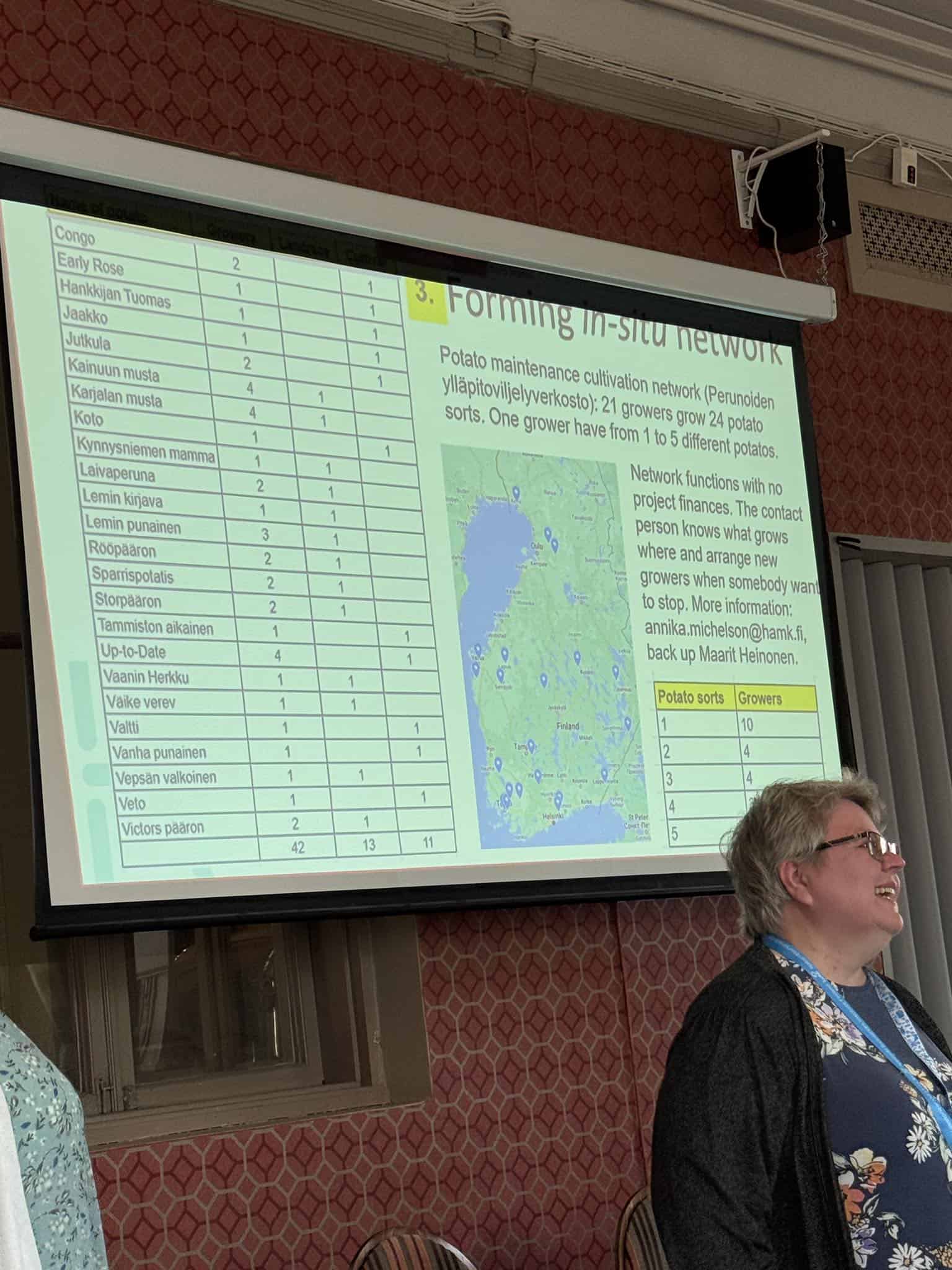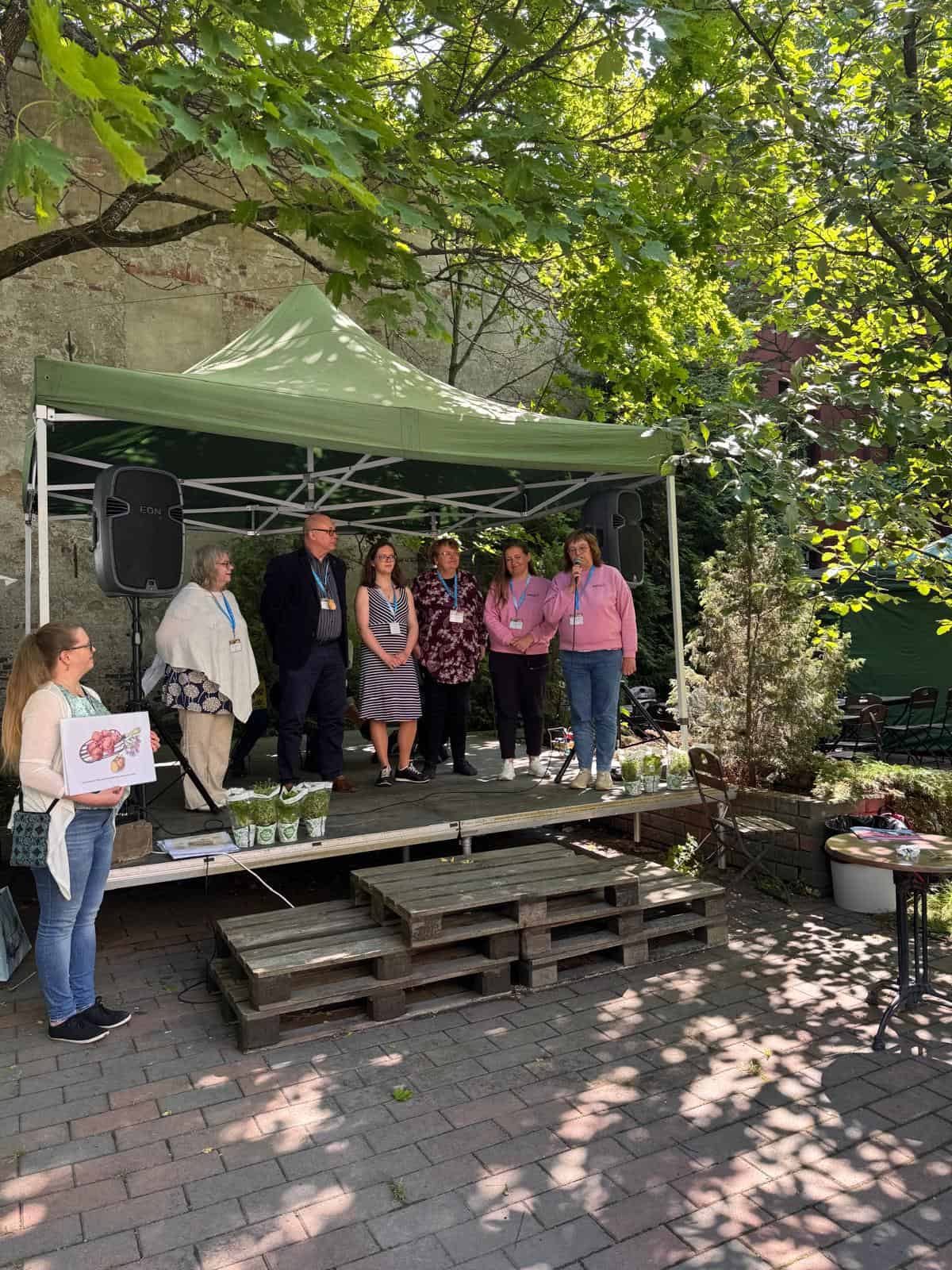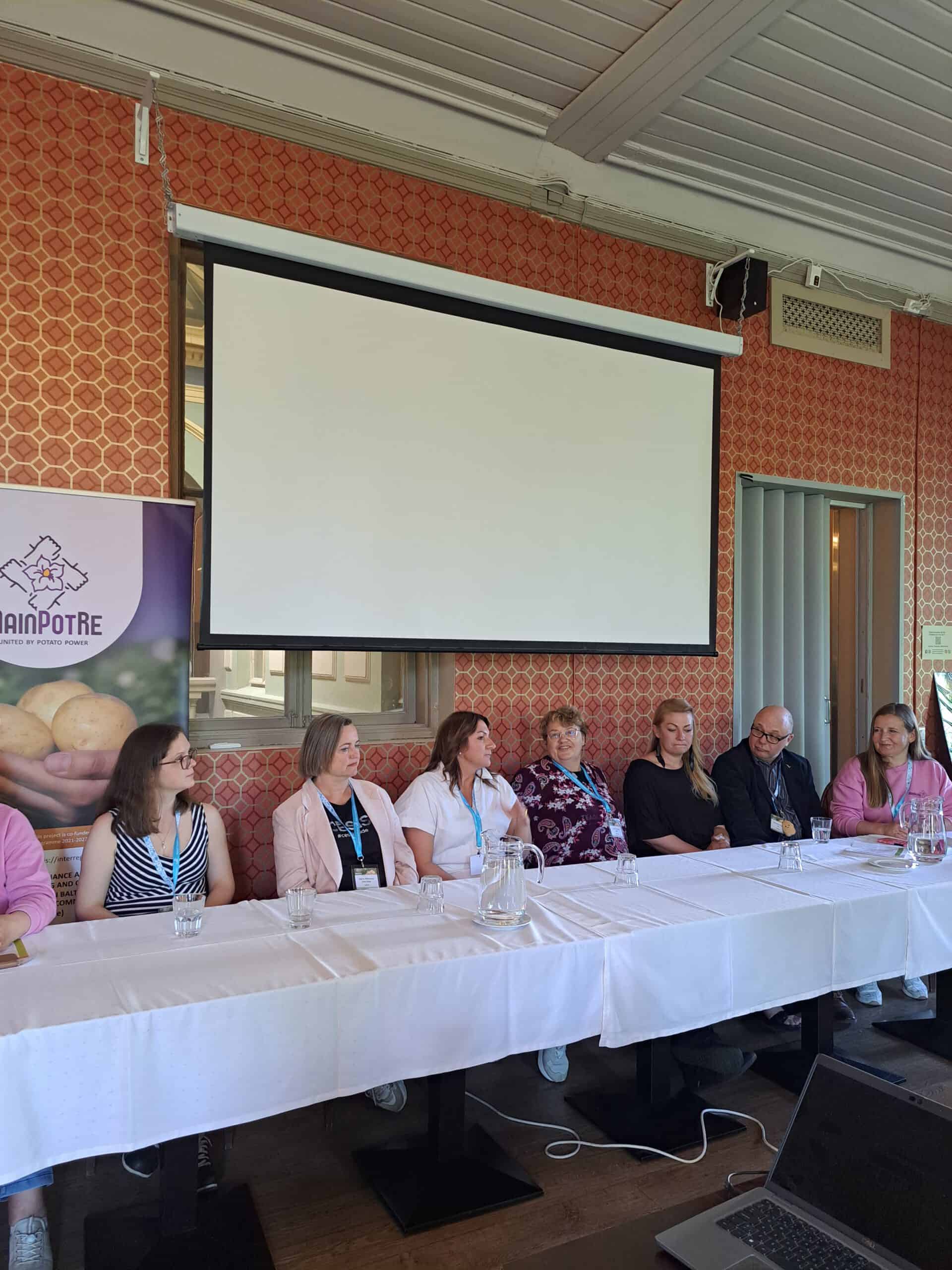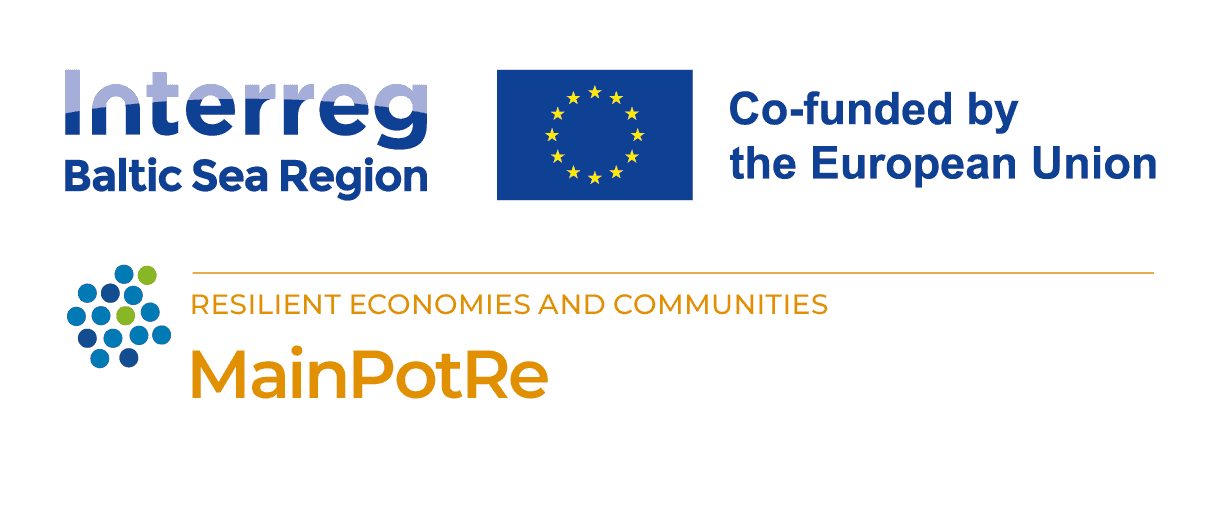
Local potato varieties and resilient communities – together in Turku
08 July 2025
The first day of the meeting was dedicated to meaningful work. The project team visited the Kupittaa allotment garden, where they explored the green space and worked together on one of the key project outputs – the action plan. This plan will improve the availability of seed potatoes from local varieties for small-scale growers, supporting self-sufficiency and resilience in the current project countries, hopefully across the Baltic Sea Region soon.
During lunch (where new potatoes were served), the project team visited the Open Air Museum Kuralan Kylämäki, which also maintains an in situ backup collection of plant varieties, including now some historically important Finnish potato varieties.
In the afternoon session, held at the museum, the project team reviewed overall progress and established deadlines to ensure that the project concludes with meaningful impact, particularly in strengthening resilient communities throughout the Baltic Sea Region.
A common thread throughout the meeting was the shared belief that this cooperation must continue. Key regional challenges were identified that can only be addressed through collaboration in the Baltic Sea region.
On June 13, 2025, the MainPotRe meeting continued with a seminar that brought together not only project partners but also representatives from diverse target groups. The program opened with a welcome from Sirpa Thessler, vice president of Luonnonvarakeskus (LUKE), who emphasised the importance of national food sovereignty as a foundation for achieving food security.
Jussi Tuomisto illustrated the crucial role of potatoes in food security through an inspiring case study from Tanzania.
Participants also learned about the special EU-recognised high-grade seed potato production region in Northern Finland (Oulu) and the importance of planting certified seed potatoes to maintain a healthy growing environment, explained by Hanna Kortemaa (Ruokavirasto – Livsmedelsverket)
Liisa Kübarsepp from Maaelu Teadmuskeskus (METK) presented a new information tool designed to help hobby growers access planting material from gene banks and contribute their varieties if they meet the criteria developed within the project.
In an engaging popular science talk, Lidija Bitz (LUKE) introduced the basics of genotyping and shared some of the surprising results uncovered during the project.
Visitors also gained insights into the current trends in the spread of potato late blight in our region and developments in organic potato farming in Finland.
Participants had the opportunity to hear the story of Annika Michelson and her team from the Häme University of Applied Sciences, HAMK, who are engaging new seed savers in the in situ conservation of heritage potato varieties – an inspiring approach to keeping traditions alive.
Ülle Jukk from the Jägevamaa Cooperation Chamber (Jägevamaa Koostöökoda) emphasised that, in addition to cultivating and breeding potato varieties, it is equally important to collect and preserve the human stories and memories associated with them.
From Latvia, Elvijs Gusārs, representative of the Latvian Permaculture Association, highlighted the importance of actively promoting seed savers’ activities through diverse channels, encouraging wider community involvement.
The seminar concluded with a presentation by Finnish farmer Stina Tammelin (Tamsaaren tila), who shared her experience growing early potatoes using long-established cultivation methods on her family farm.
Later that day, participants attended the Virgin Potato Festival (Neitsytperunafestivaali), where Finnish growers of heritage varieties took to the main stage to share their expertise and passion. The event closed with a panel discussion moderated by Ilze Dimante of the Institute of Agricultural Resources and Economics (AREI), during which speakers from Finland, Latvia, and Estonia reflected on the project’s impact in empowering local communities and pointed out the need for continued and expanded regional cooperation.
